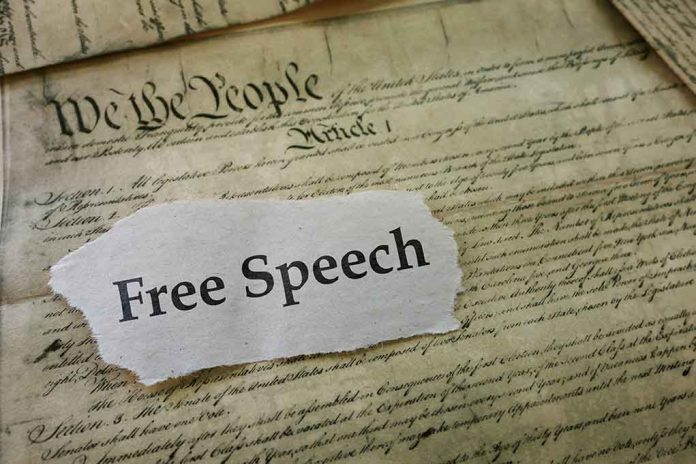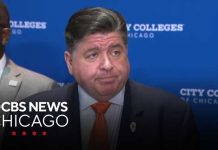
Tennessee civil rights attorney Daniel Horwitz won back his free speech rights after a federal court revoked a gag order that prevented him from exposing alleged abuses at privately-run CoreCivic prisons.
Key Takeaways
- The U.S. District Court for the Middle District of Tennessee has rescinded a controversial rule that presumed attorneys’ public statements were prejudicial
- Civil rights attorney Daniel Horwitz can now resume criticizing CoreCivic’s private prison operations, including allegations of understaffing and inmate deaths
- The Institute for Justice and Southeastern Legal Foundation supported Horwitz’s First Amendment lawsuit against the federal court
- The victory strengthens attorneys’ ability to speak publicly about civil rights cases throughout Tennessee
First Amendment Victory for Tennessee Attorney
In a significant win for free speech and government transparency, civil rights attorney Daniel Horwitz successfully challenged a restrictive court rule that had effectively silenced his public criticism of Core Civic, a private prison contractor operating in Tennessee. The U.S. District Court for the Middle District of Tennessee amended its local rules to remove a provision that presumed any out-of-court statements by attorneys were prejudicial, placing an unconstitutional burden on lawyers to prove otherwise. The rule change came after Horwitz filed a federal lawsuit arguing that the gag order violated his First Amendment rights.
“I’m thrilled that my First Amendment rights have been vindicated, but more importantly, I’m thrilled that I can resume informing the public about civil rights abuses across Middle Tennessee,” said Daniel Horwitz.
Horwitz, a prominent civil rights litigator in Tennessee, had been restricted from publicly commenting on cases involving CoreCivic’s Trousdale Turner Correctional Center. The attorney had previously criticized the private prison company for understaffing issues and alleged responsibility in wrongful death cases. Under the now-rescinded rule, Horwitz was even ordered to delete past social media posts about the company, significantly hampering his advocacy efforts and public awareness campaigns.
Private Prison Operations Under Scrutiny
Core Civic, which operates the Trousdale Turner Correctional Center (TTCC) in Tennessee, has been a frequent target of Horwitz’s legal advocacy. The attorney has represented clients in cases alleging dangerous understaffing and wrongful deaths at the facility. The gag order had effectively shielded Core Civic from public scrutiny by preventing Horwitz from discussing these cases with media outlets or on social media platforms, where his commentary could reach the public and policymakers concerned about prison conditions.
“We respect the judicial process in which amendments to local rules are reviewed and modified. We also stand by our belief that matters involving litigation, and legal rules, policies, and procedures should be decided within the court system and not in the press or social media,” said Ryan Gustin.
Core Civic had argued that Horwitz’s public comments could prejudice potential jurors and interfere with fair trials. However, legal experts countered that existing ethical rules already prohibited truly prejudicial statements, making the additional restriction unnecessary and unconstitutionally broad. Now freed from these constraints, Horwitz has resumed his public criticism of Core Civic, highlighting issues such as chronic understaffing and alleged non-compliance with contract requirements that may put inmates at risk.
The Legal Battle for Free Speech
Horwitz’s fight against the gag order was supported by the Institute for Justice and the Southeastern Legal Foundation, organizations dedicated to defending constitutional rights. Although a U.S. District Court judge initially dismissed his lawsuit for lack of standing, Horwitz appealed to the U.S. Court of Appeals for the Sixth Circuit. While that appeal was pending, the court proposed amending the controversial rule and, after receiving public comments, ultimately scrapped it entirely, rendering the appeal moot.
“Discussing cases with the media and public is a huge part of public interest litigation, including the work that we do here,” said Scott Bullock.
The Institute for Justice emphasized that public interest attorneys’ ability to publicize their clients’ stories through media and social platforms is crucial for effective advocacy. This communication is especially vital when challenging powerful government entities or large corporations with significant resources. The victory represents a meaningful precedent for protecting attorneys’ speech rights in Tennessee and potentially across other jurisdictions where similar restrictive rules might exist, ensuring that civil rights advocates can effectively inform the public about alleged abuses.







